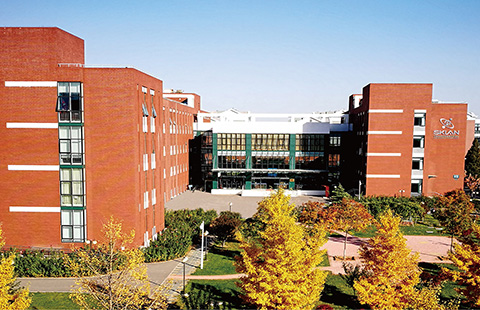The State Council has unleashed a new set of measures to stabilize hog production amid falling pork prices, as analysts highlighted the need to offer more subsidies to farmers to protect their interests.
The council decided in its executive meeting on Wednesday the government will adopt more measures in line with market principles to stabilize hog production and ensure the stability and price of the pork supply.
To keep pig farmers motivated, the government will ensure the consistency of long-term support policies, including financial support and land use, according to a statement released after the meeting.
Financial institutions should not arbitrarily limit or cut off loans to farmers or slaughterhouses, while local governments should not expand areas that prohibit pig farming, per the statement.
The council also pledged to stabilize the number of large-scale pig farms and help small and medium-sized farms to raise their level of production.
Local authorities can issue one-time temporary aid packages to large-scale farms or farmers should the number of breeding sows drop by 10 percent on a monthly basis or pig farmers register losses for three consecutive months.
Also highlighted at the meeting was the importance of preventing major outbreaks and enhancing the emergency adjustment with the pork reserve.
The measures by the central government came as hog prices in China have fallen sharply due to a significant improvement in supply and the decline in demand since the beginning of the year.
The surge in pork production followed a price surge in 2019 and 2020, when African swine fever ravaged the country's hog herds and drove up pork prices.
Data from the National Bureau of Statistics showed China's pork production was up 35.9 percent year-on-year. The number of hogs slaughtered was 109 million, up 44.9 percent in the first half, according to the Ministry of Agriculture and Rural Affairs.
Zhu Zengyong, a Chinese Academy of Agricultural Sciences researcher who focuses on the pork sector, said a pressing task for the government is to prevent a sharp drop in pork prices, and authorities can resort to measures including timely adjustments in the tariffs for imported pork and replenishing the pork reserve.
He said the government can also adopt a host of aid measures, including temporary aid, low-interest loans, subsidies for the reuse of feces and insurance for pork prices and incomes to protect the interests of pig farmers.
Over the longer term, it is important to establish a mix of policies that stabilize production and prevent market risks and ensure the consistency of support measures, he said.










